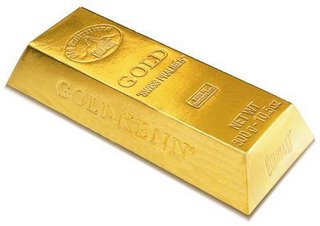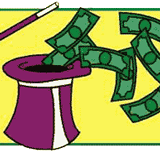Wednesday, October 04, 2006
Future Career Path Quiz
It might not be perfect but it sure does offer some insights into your interests and aptitude in different types of profession.
It takes less than 2 minutes, go try it!!
The link
http://quizfarm.com/test.php?q_id=164749
Nobel Prize for Economic Sciences
Left with prizes for Literature, and the prestigious Nobel Peace Prize to be announced on Friday.
To update tomorrow
Wednesday, August 23, 2006
Trying to tame a Chinese tiger

The world's fastest growing economy, China's real GDP is increaing at a breakneck speed.
China's exports this year are expected to soar by 20.8% while imports rise by 18.4%.
Two features of China's economic story compel immediate attention.
The real GDP growth rate reached 11.3% in the second quarter this year, the fastest pace in a decade.
This rate has been driven by heavy spending on new factories and other fixed assets.(Investment)
Earlier last week the World Bank forecast that it expected China's economy to grow this year by 10.4%.
Investment in some industries such as car manufacture exploded by 44.5% in the first six months of this year.
While it seems to be great having such fantastic figures. However, there are also dangers or risks of having such high growth rates.
The dangers/risks will be:
1) High inflation
2) High bad debts
3) Too much short-term spending without sound fundamentals
4) High gearing ratio (too much debts to finance investment)
http://business.scotsman.com/index.cfm?id=1222302006
Wednesday, July 19, 2006
Excess Capacity at Proton
What is excess capacity then?? Revision
In this article, it was mentioned that Proton, our national car maker is running on 40% spare or excess capacity, meaning that Proton is operating at 40% less than the optimum (ideal) capacity. A cause for concern no doubt.
"Some of the trucks load to just to 60%," he says, "compared with 90% at Toyota. We're paying for air." Zainal admits that Proton's three assembly lines have about 40% spare capacity.
What could be the reason(s) for the fall in sales of Proton cars??
Thursday, July 06, 2006
BMW ( in conjunction with the World Cup fever)


Barriers to entry in the form of technical know-how - One good example is the company BMW (even though BMW is not a monopoly) in the automobile manufacturing.
In the motoring world, certainly everyone has heard of this name before.
It is synonymous with supreme German precision in engineering , incomparable engine performance, sublime quality finishings and ultimate driving experience. No wonder its motto is "Ultimate Driving Machine"
However, very few people know what the acronym BMW really stand for??
Do you know what BMW stands for??
One student said : Business Motor Wehicle ( very creative indeed!!)
Maybe it is more applicable for IBM (International Business Machines)
Well, BMW really stands for Bayerische Motoren Werke in German or Bavarian Motor Works in English.
The company was founded in Bavaria, that's why it contains the word 'Bayerische', someone noted that it is similar to the world famous football club Bayern Munich..yes, the club shares the same origin with BMW whereby they are both are formed in the city of Munich, Germany.
The blue-and-white logo BMW still uses (illustrated above right) represents the blue and white checkered flag of Bavaria and also indicates the origin of BMW by symbolizing a spinning white propeller on a blue-sky background.
For more information
Read this link for everything about BMW
http://en.wikipedia.org/wiki/BMW
Barriers to Entry - BMW's techincal know-how in automative engineering had become barriers to entry for new automative firms intending to join the industry. What say you???
Tuesday, June 27, 2006
World's Most Expensive Cities

Do you know where is the most expensive city in the world??
Due to the exchange rate fluctuations and the rise in property prices, certain cities are getting more and more expensive to live in.
The surprising thing is that the cost of living in cities like London, New York, Tokyo and Paris does not seem to deter people from visiting both for leisure and work.
Well, the temptation is too much to reject I guess
The survey by Mercer Human Resource Consulting ranked 144 cities around the world, measuring the comparative cost of more than 200 items such as housing, transportation and food. The survey is aimed at helping multinational employers determine compensation for their expatriate workers.
Ranked No.1 is Moscow, No.2 : Seoul No.3: Tokyo
Moscow is so expensive to live in..I never thought of that..
Here is the list of the Top 50:
http://biz.yahoo.com/ap/060626/world_s_expensive_cities_glance.html?.v=1
Kuala Lumpur is not even in the list of Top 50. Disappointed??
Is it a good thing or a bad thing??
Friday, June 16, 2006
Why is it good to be Young?
Malaysian employers tend to perceive older workers less favourably compared with younger ones, a global study commissioned by HSBC Bank reveals.
Apparently, young workers are perceived to be more energetic, aggressive and able to work at a higher tempo as they have higher endurance level.
However, older workers ( I mean over 50s) tend to be regarded as seasoned, vastly experienced and loyal..( there are little options of where they can go at this ripe age)
I believe that the COST could be the reason.
Whilst you can offer a young turk for a paltry sum RM2000 as his/her first employment salary,
after hiring, get him/her to work as hard as possible..loading him with the work of 3 or 4 persons..with a promise of a promising career prospect. I am sure a great majority would fall for that. Some made it, some don't
As compared to older workers, a firm can't possibly pay them 'chicken feed' and expect them to work just as hard. Seasoned as they are, they have the guts to demand higher returns for what they have contributed back to the firm. This represents high cost to the firm.
The maxim goes," Why hire a dispensable older worker when you can hire someone who can work as hard but commands one-third his salary?"
So, what should firms do to the older workers after hiring young blood??
Accelerate their departure by offering them VSS ( Voluntary Separation Scheme) i.e. Optional retirement benefits.
http://biz.thestar.com.my/news/story.asp?file=/2006/6/16/business/14543819&sec=business
Thursday, May 25, 2006
12% Rise Electric Shocker!!! Zapped !!


The announcement of the higher electricity tariffs would definitely strike fear in every consumer.
As if the rise in the petrol prices are not enough, now the consumers (especially the lower income group) will be feeling the pinch as far as their lifestyle is concerned.
The announcement did not come as a surprise as the Cabinet had deliberated on the matter for quite a while now.
Was wondering, what's next in the queue:
1) Water rates
2) Toll rates
3) Water treatment rates
4) Telephone bills
5) Business licenses
6) Other taxes
Further Increases in Costs of Production
The rise in these 'utilities' lead to an increase in the cost of production, the rise might shift the supply curve to the left, culminating in an increase in the market(equilibrium) prices of goods and services in the country.
As our nominal/money wages remain constant( or negligible increase in money wages), the households' purchasing power is deteriorating gradually.
Any chance of reversing this scenario?
The government's reaction/advice/pacification:
To have a smaller electricity bill, people should learn how to conserve energy and cut down the usage by minimising wastage.
“The new tariff structure encourages consumers to conserve energy instead of using electricity as if there is no tomorrow,” he said, giving an example that consumers need not set their air-conditioner at 16°C and that 24°C was good enough.
Each time there is an increase in prices of anything, this familiar quote will surface
"Even with the 12% tariff increase, he said, Malaysia still had the cheapest electricity in the region with the exception of Indonesia."
Does this sound familiar??? Hahahaha
My point is:
Well, the issue is ..should the 'wastage-reduction' mentality fall squarely on the shoulders on the people?
or shouldn't it be a responsibility of each and every person in the country, not just the households, as wastages can come in many 'forms'.
The Star reported:
http://www.thestar.com.my/news/story.asp?file=/2006/5/25/nation/14343755&sec=nation&focus=1
Petrol Prices Might Go Down (Yeah right!)

For a moment, i thought it was forthcoming. I was overjoyed!!!
However, having read the entire article
My hope of seeing petrol prices going back to RM1.30/liter during the good ol' days of 2002-2004 went up in smoke.
For prices to rise, it took only an announcement..
For prices to tumble, it is subject to many constraints.
According to the minister, prices will only fall if the world crude oil prices fell drastically...well, dream on.
Poor consumers.
Dr Awang, however, cautioned that while the price could drop to US$60 a barrel, it would be unreasonable to expect it to fall to US$30 a barrel.
http://www.nst.com.my/Current_News/nst/Wednesday/NewsBreak/20060524180907/Article/index_html
Wednesday, May 24, 2006
Even the Air Smells Expensive


Remember we discuss about luxury goods which are very price-elastic? Take a look at the example.
Fancy a handkerchief priced at RM1,300 or
a sweater at RM5,500 or
a shirt at RM9,000 or a belt that costs you as much as RM37,000! ( enough to buy a Proton Iswara)
These are the real items sold at Bijan at Beverly Hills, US.
Bijan, known as ‘the world’s most expensive menswear designer’ serves not the rich, but the super-rich.
He mentioned that a client’s income should be at least US$1mil (RM3.63mil) a month after taxes to afford to shop at his shop.
All the trasactions are done 'only by appointment' basis, he has no time to attend to window shoppers..How arrogant.., nevertheless with his stature, he can afford to.
His clients include:
two emperors,
five kings,
the presidents of 36 countries,
six prime ministers and
500 heads of states and captains of industry.
Familiar names like Prince Charles, Steven Spielberg, David Geffen, Larry King, Steve Wynn and this includes our very own Pahang Sultan “His Majesty Sultan Ahmad Shah”
If you are thinking of changing your wardrobe for a season, Bijan's price tag is US$1 million!!!
And the best thing is, if you are unable to come to Bijan, Bijan can come to you!! He has
his own plane
Twice a year, he and his team fly off to see his clients, either in their homes or the best hotel suite in town. Naturally, he flies in his private jet; God forbid he fly commercial and be subject to timetables!
Should you be left stranded in Kuala Lumpur because your wife has taken your plane to go shopping in Paris, he can send his jet to pick you up, too.
To read more, here is the article
http://thestar.com.my/lifestyle/story.asp?file=/2006/5/21/lifefocus/14003634&sec=lifefocus
Talking about luxury goods, this is the REAL thing.
Thursday, May 18, 2006
We know price of gold is high , but....


Mining companies might rejoice at the rising gold prices, but they have a problem.
The supply of gold is inelastic, they are not able to increase the quantity supplied by 'producing' them.
Another factor is the cost of production as the process of gold mining is a costly process.
As such, they might not be able to capitalize on the current situation to maximise their total revenue and profits.
Gold mining companies in Senegal is facing this problem, read the article
With prices for gold hitting 26-year highs, mining companies are searching for new ways to extract every nugget from the ground. Yet they say they cannot substantially increase production - a limitation that could keep prices high for years.
Compared with oil, increasing the gold supply is a much more costly - and longer - process.
http://www.philly.com/mld/inquirer/business/14588798.htm
One question, ever thought of the reason behind the continuous rise in the price of gold?
Sunday, May 14, 2006
Internet Economics - Google Advertising



I am sure you have heard of Google. It is the most famous search engine in the world.
Internet search engines are special sites on the Web that are designed to help people find information stored on other sites. They made our search for information easier
At Google, they provide an advertising function called "Adwords Pay per Click"
AdWords uses cost-per-click pricing, which means you pay only when people click on your ad. There is a nominal, one-time activation fee for Google AdWords.
The cost of per click starts from US$5 , that means if you have a website advertised in Google to sell something and someone clicks on your website, then Google will bill you according to the number of clicks per day.
Imagine people are clicking on your website, and before you start selling anything those people at Google will be laughing all the way to the bank.
One click..let's say US$10 per click ( and your website appears on Page 1 of Google search) , if there are 100 clicks per day, Google will be richer by US$1,000 in a few seconds...Imagine there are hundred of thousands websites advertised in Google..no wonder the founders of Google, Larry Page and Sergey Brin are billionaires.
Temporary Hiatus
Too occupied with responsibliities...social, economic and emotional..haha..depends on how they are interpreted. :)
Did not even have the time to read newspapers or articles to contribute anything.
I'll be back soon.
I thank all of you for your comments and your participation in the poll. Really appreciate them to make this blog a vibrant and lively one!! Keep up the good work
Replies shall be given in due course.
Monday, May 08, 2006
Just as what we learnt in market equilibrium topic two weeks ago.
Because of the shortage, the sugar price rises to eliminate the shortages.
What could be the reason??
Too much demand or too little supply..??
This is Economics-in-action,
Our suppliers told us they had run out of stock as the factory was shut down for maintenance. If this continues, our operations will be affected and we will have to bear a higher cost of production if we want to remain open," he said.
The wholesale price of sugar, he said, had soared a fortnight ago from RM64 to RM69 for a 50kg sack.
http://www.nst.com.my/Current_News/nst/Monday/National/20060508073732/Article/index_html
Friday, May 05, 2006
Rule of 72


Have you heard of The Rule of 72?
There’s an easy rule you can use to work out how your savings or investments can grow with compound interest.
The result tells you how long it will take for your money to double without further savings.
How it works??
Just divide 72 by the interest rate (or average annual return).
For example, you have RM10,000, let's say you are earning 6% interest.
So, 72 divided by 6 = 12.
Every 12 years your RM10,000 will double, so:
After 12 years you have RM20,000
After 24 years you have RM40,000
After 36 years you have RM80,000
If the interest rate is 10%, then 72 divided by 10 equals 7.2.
Any amount of money will double itself in 7.2 years!!!
Just use any amount of money, and the prevailing interest rate.
You'll be amazed at the power of compounding interest!!
Haha..should you start saving now???
Thursday, May 04, 2006
Plastic Goods are Price Inelastic..??!!


Due to the many usages of plastic in today's world,
they have become such a necessary and indispensable item.
However, I didn't expect then to become price inelastic
Until I read this article ...
As its products get more durable and versatile, they've become an indispensable part of construction, consumer packaging and countless other fields.
Building material in particular is driving growth for plastic makers.
According to the American Plastics Council, 30% of plastics go into bags, bottles and food containers.
Consumer goods, such as kitchen products, toys and sports equipment account for 22% of all products. Building materials account for 18%.
The use of plastics is intensive as substitutes for natural material, such as wood, glass, paper and metal.
Plastic is already a valuable commodity.
Link
http://www.investors.com/editorial/IBDArticles.asp?artsec=23&issue=20060407
Wednesday, May 03, 2006
Price Ceiling for Cement in Malaysia


Real life example of price ceiling
Other than prices of chickens, cooking oil, flour being controlled during festivals,
cement price in Malaysia, too , has a price ceiling , it is at RM198 per tonne.
The article mentioned
Cement, a controlled item, has an average government ceiling price of RM198 per tonne, which is deemed the normal level.
The price of the commodity is expected to average RM185 per tonne, which is 19% higher than last year's average of RM155 a tonne.
Analysts expect prices to rise further to RM192 and RM198 a tonne in 2007 and 2008 respectively, on better demand-supply balance. (greater demand in the market?, shift of demand curve to the right?)
Link to article
http://biz.thestar.com.my/news/story.asp?file=/2006/4/24/business/14005604&sec=business
Think: Why is demand cement important? In which industry it is relevant to?
Tuesday, May 02, 2006
Child Labour In India - Swarovski Crystal



One of the factors of production is labour.
Labour cost is extremely low in the underdeveloped countries, making the cost of production very low as well. For example, labour costs in China and India.
Do you know why labour costs in these countries is so low?
Because they employed child labour, work them so hard and pay them so little, and not even giving a decent place to sleep and proper food to eat.
Born into a life of extreme poverty, these poor children had no choice but to work to eke out a living doing jobs like this.
Have you heard of Swarovski Crystal? I won't look at them the same way again.
In India, child labour as young as eight-years old work for 16 hours a day, sewing the Swarovski crystals onto dresses. Some are paid pathetic sums like US1 per day.
Each night the boys bunk down on the roof of the building where they work 16-hour days, sleeping amid a filthy tangle of cables and pools of oily stagnant water. The factory owner's dogs also sleep up here, biting at the fleas infesting their mangy fur.
'We treat them well,' Krishnan (hahaha, yeah right !!!) says as I look around at the filthy matted bedding. A late lunch is brought in metal bowls: clumps of potato floating in murky curry, a few chapattis. The boys greedily slurp it down before carefully washing their hands and getting back to work.
read the artcle
http://observer.guardian.co.uk/world/story/0,,1764531,00.html?gusrc=rss
Who uses/wears Swarovski crystals?
Swarovski's has collaborated with fashion houses such as
Coco Chanel
Christian Dior
Yves Saint Laurent
Gianni Versace
to produce for the rich and famous!!!
In Britain, these crystals can be found on Camilla Parker Bowles's wedding hat and P Diddy's crystal-encrusted mobile phone.
In India - Swarovski has partnerships with nine of India's top fashion designers, including JJ Valaya and Tarun Tahiliani, whose clients include Jemima Khan, the Duchess of Kent and Bollywood stars Aishwarya Rai, Simi Garewal and Kabir Bedi
According to the report, Swarovski crystals can be found on iPods and mobile phones. (wizzerd:really?)
Guess what, for what what they paid the children, these crystals are sold for obsene sums of money.
ISN'T THIS EXPLOITATION??
Sunday, April 30, 2006
Work Hard, Play Hard, Result = Increased Productivity?


In the workplace, imagine we can work and play at the same time?
If you are bored with your work, go down to the cafe, get yourself a cup of cappucino, sitting down while watching Astro Supersport, or Astro MTV.
Then you saw your friends enjoying a game of pool and snooker laughing away as if there are no worries in the world. SOme are having a go at the board games, Scrabble, Piktionary and chess
Down the corridor, somebody just woke up from their afternoon nap, walking past, greeting you,
"Good afternoon" (Wow, imagine you can sleep during working hours?)
After a 15-minute workout at the company gym, you head back to finish up some work.
Wouldn't it be nice if we can work in this environment?
Will it increase productivity, thus increasing supply?
These are not from some fictional environment, it is happening in Shell Malaysia at Cyberjaya.
“We recognise that work and life are intimately linked,” says Mabal Tan, director of Shell Information Technology International Sdn Bhd. But personal values and commitments versus company schedules and demands can unbalance one’s work life.
At Shell IT’s cheerful purpose-built office in Cyberjaya, sports club members can indulge in football and kickboxing, among other things. For indoor fun, there are games like Pictionary, billiards and table tennis. The gymnasium is well equipped, and has ample space for salsa, yoga and aerobics classes
For more information, read this..
http://thestar.com.my/lifestyle/story.asp?file=/2006/4/30/lifefocus/14099864&sec=lifefocus
With the good relations between employers(firms) and employees, there are no worries of bad industrial relations, what happened to labour productivity and supply?
Wednesday, April 26, 2006
Crude Oil Prices - Rising and Rising


Prices of crude oil in the world market is the always a concern for all of us.
RM1.92/liter is the government subsidised price, and there are fears that it will rise again in the future, despite the promise of the government of not to increase it again this year.
Why is it that the crude oil price increasing?
Think..of the equilibrium price we learnt yesterday.
Among others, it is due to the shortage/deficit of oil/petroleum in the world market.
Next question...why is there a deficit?
Excessive demand for oil/petroleum, that's why? ( it has become an obsession)
Then why is there excessive demand then????
Because of fear due to uncertainties in the major petroleum producing countries, like Iran and Nigeria.
Excerpt from the article from Bloomberg.com,
Crude oil rose to a record $75.15 a barrel.....
(1)The standoff over Iran's nuclear program has intensified, increasing the chances of sanctions against the world's fourth- biggest oil producer.
(2)Rebel attacks in Nigeria have shut about 20 percent of output in Africa's biggest oil producer.
``Any kind of supply disruption will send us up toward $100,'' said Peter Schiff, chief executive officer of Darien, (oh no!!)
The link to the article
http://www.bloomberg.com/apps/news?pid=10000087&sid=aaCC8zoSffrw&refer=top_world_news
Tuesday, April 25, 2006
Smuggling of Cigarettes. Why?


What is smuggling actually??
We have heard about it in the news, on tv..and even from people on the street.
Have you ever thought, why do people smuggle?
It definitely had to do to the things we learnt in class before.
In a layman's language, smuggling means getting goods from a foreign without going through the customs in which taxes/duties had to be paid.
That's why prices of cigarettes, alcohol are expensive as part of the price we pay for goes to the government as taxes/duties.
Smuggling means the avoidance of paying taxes/duties but sellers still charge a premium( a little lower compared to market prices) on their prices, giving them a higher profit margin.
There was acase which was busted yesterday at Pontian
PONTIAN: Marine police here nabbed three Indonesians and seized RM120,000 worth of smuggled cigarettes after a 30-minute high speed chase.
Southern Region Marine Police deputy chief Supt Omar Dawam said upon inspection of the longboat, police discovered 1,500 cartons of Marlboro cigarettes and 700 cartons of Gudang Garam Suria cigarettes.
Three Indonesian men were also detained.
“The cigarettes are worth about RM120,000,” said Supt Omar
http://www.thestar.com.my/news/story.asp?file=/2006/4/25/nation/14050540&sec=nation
Monday, April 24, 2006
Upward Sloping Demand Curve


Veblen Goods
Price increase, then quantity demanded increase as well?? It is possible
It is argued that the attractiveness of some goods increases as their price increase.
Some people buy expensive things because they are expensive; the ownership of such goods puts them in a rather exclusive class.
For example: Expensive paintings, Vintage cars
When goods are purchased for ostentatious (show off) purposes and as their price rises so does their attractiveness because they provide a means of displaying superior wealth.
A fall in price might cause them to lose some of their appeal and the quantities demanded might fall because they will not be so effective as a means of displaying wealth.
Demand Curve Can be Upward Sloping Also!!

We have learnt in class that the price has an inverse relationship with the quantity demanded. ceteris paribus.
However, there are exceptions to the rule..
In some cases, the quantity demanded sometimes might vary directly with price (unusual demand curves, more quantity will be demanded at a higher price).
When the price increases, quantity demanded will also increase!
The reason for this include:
It's called a Giffen's Paradox
The English economist Giffen came up with this idea
In the 19th century during the Irish Potato famine, people are very very poor.
If the price of basic foodstuffs such as bread, rice, corn, and potatoes increases, quantity demanded will also increase.
The reason is that as price rises, the higher price makes it impossible for consumers to purchase better quality foodstuffs.
They have no choice but to consume these poor quality foodstuff even though the price of these items has increased.
Could you think of other reasons as to why demand curve can be upward sloping?
Friday, April 21, 2006
Tin prices are rising (2)


The increase in the world tin prices is mainly a result of a deficit in the world tin market.
What is deficit?
Deficit is also known as "shortage". We will cover that in the Lecture 4.
Shortage happens when the demand is greater than the supply. Supply may remain constant or the demand is simply increasing faster than the supply.
A shortage/deficit is likely to push the price of tin up.
Why is there a shortage in the place?
Which country/countries contribute(s) to the significant increase in the demand for tin?
The answer is China.
Large increase in Chinese demand China is by far the largest market for tin, and accounts for the bulk of the increase in world demand since 2002. In 2003, Chinese consumption had risen to 24% of the world total, followed by that in the USA (14%) and Japan (9%). Chinese tin consumption is expected to total 80kt in 2004, reducing exports still further in the absence of any major new production.
The link
http://www.the-infoshop.com/press/ros24981_en.shtml
Why is it that China demand for tin so high?
Thursday, April 20, 2006
Tin prices are rising


We have learnt about tin-mining ( bijih-timah in Malay) in our history books. Klang Valley and Kinta Valley were once known throughout the world as the biggest producers of tin in the world.
Remember Yap Ah Loy, the most famous Chinese Kapitan of Kuala Lumpur? Larut Wars? A bit of history lesson here.
Also, in the Wizard of Oz, the remember Tin Man?
Over the years, the supply of tin has dwindled (decreased) drastically as these resources ran out of supply. Many tin mines have been closed down and some had been turned into a theme park, for example, Mines Wonderland at Serdang. It used to be a tin mine.
Tin is a factor of production (land) as it is a mineral.
However, world tin prices this year are rising, it has gone up by more than 50% since last year.
The Star reported:
Tin prices rose to US$9,290 a tonne, up US$280 from US$9,010 on Tuesday, in tandem with the huge rise on the London Metal Exchange (LME) after an extended weekend.
In the past six months, tin prices have risen more than 50% from US$6,000 in the fourth quarter last year,'' an institutional dealer told StarBiz.
What could be the reason or reasons for the price rise?
Here's the link from the Star
http://biz.thestar.com.my/news/story.asp?file=/2006/4/20/business/14008504&sec=business
Wednesday, April 19, 2006
Unlimited Wealth = Unlimited Resources???

When we talk about unlimited wealth, we talk about this man. His fortune is a staggering US$45 billion!
Consider that he made this money in the 25 years or so since Microsoft was founded in 1975. If you presume that he has worked 14 hours a day on every business day of the year since then, that means he's been making money at a staggering million dollars per hour, around $300 per second!!!
As I am blogging for 1 minute, Bill Gates has just increased US$18000 in his pocket. How about being him for a day? In one day, he will be earning US$14,000,000!! Crazy..
His wealth is even greater than some countries in the world.
Being the richest man in the world, does he have any constraints?
A list of richest man/woman in the world in the year 2005 is found in the Forbes magazine online.
http://www.forbes.com/2005/03/09/bill05land.html
Tuesday, April 18, 2006
Thank God It's World Cup Year (TGIWCY)


It's 2006 again!!!
It is the season to savour the greatest show on Earth. An estimated 3 billion people will tune in to watch the football showcase whivh takes place every 4 years. This time the host is Germany.
How will it affect us??
- Sleepy employees
- Low labour productivity during the day
- Higher food and drinks consumption ( Mamak stalls will fl0urish)
- Less traffic congestion
- Less night activities (cos' all the time will be spent in front of the TV)
- Higher sales of certain goods and services
- Lower sales of certain goods and services
Read yesterday's Star Online
http://thestar.com.my/news/story.asp?file=/2006/4/17/nation/13977413&sec=nation
Demand of which goods and services will rise/fall during the period?Supply of which goods and services will rise/fall during the period?
How can we relate to the change in 'quantity demanded' and change in 'demand'?
Mirror, mirror on the wall, who is the Richest of Them All???


GDP per capita is normally used as an indication of wealth of countries.
However, it may not be the end-all in comparison as the figures only deals with the value of all final goods and services produced in a given year.
There are other factors that must be taken into account, you can read the article about its shortcomings...I am not going to tell you everything..remember?? You have to explore and relate..
This is the webpage:
http://en.wikipedia.org/wiki/List_of_countries_by_GDP_(Nominal)_per_capita
Enjoy exploring.
Post your comments..if you wish to.
Monday, April 17, 2006
And there shall be a blog...
WE PRESENT TO YOU AND THE WORLD,
"ECONSTER"
Econster (ĕk'on'ster). noun
A weblog (or ‘blog’), a web-based publication consisting primarily of periodic articles that displays academic articles pertaining to Economics, Business, Finance in chronological order the postings by one or more individuals and usually has links to comments on specific postings.
Creates a link between the students, lecturer and the World Wide Web with regard to learning materials relevant topics covered in the academic syllabus. It aims to allow students and individuals easy access to online articles.
Utilised as an Internet networking tool for students and other individuals in virtual communities.
The Econster site was founded in April 2006 by Wizzerd and is hosted by a blog hosting service, www.blogger.com.
A place to relate
A place to understand
A place to analyse
A place to discuss
A place to explore
...and a place to digest..
di·gest (d-jst, d-)v. di·gest·ed, di·gest·ing, di·gests v. tr.
1.Physiology. To convert (food) into simpler chemical compounds that can be absorbed
and assimilated by the body, as by chemical and muscular action in the alimentary canal.
2.To absorb or assimilate mentally.
3.To organize into a systematic arrangement, usually by summarizing or classifying.
4. To condense or abridge (a written work).
5. To endure or bear patiently.
6.Chemistry. To soften or disintegrate by means of chemical action, heat, or moisture.
Hopefully it relates to the 3rd and 4th, and not 1st, definitely not the 6th!!
Let the blogging begin.
